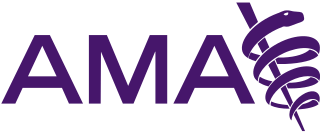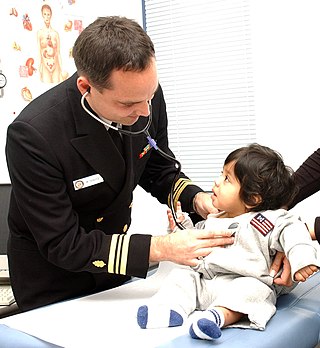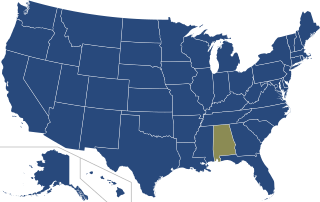The Washington State Medical Association (WSMA) is a professional organization providing tangible support of medical practice and access to physician services; promoting quality, cost effective care; and being a respected voice in the public arena.
The Washington State Medical Association (WSMA) is a professional organization providing tangible support of medical practice and access to physician services; promoting quality, cost effective care; and being a respected voice in the public arena.
The WSMA is physician driven and patient focused, working to make Washington a better place to practice medicine and to receive care.

A physician, medical practitioner, medical doctor, or simply doctor is a health professional who practices medicine, which is concerned with promoting, maintaining or restoring health through the study, diagnosis, prognosis and treatment of disease, injury, and other physical and mental impairments. Physicians may focus their practice on certain disease categories, types of patients, and methods of treatment—known as specialities—or they may assume responsibility for the provision of continuing and comprehensive medical care to individuals, families, and communities—known as general practice. Medical practice properly requires both a detailed knowledge of the academic disciplines, such as anatomy and physiology, underlying diseases, and their treatment, which is the science of medicine, and a decent competence in its applied practice, which is the art or craft of the profession.
In the United States, a health maintenance organization (HMO) is a medical insurance group that provides health services for a fixed annual fee. It is an organization that provides or arranges managed care for health insurance, self-funded health care benefit plans, individuals, and other entities, acting as a liaison with health care providers on a prepaid basis. The US Health Maintenance Organization Act of 1973 required employers with 25 or more employees to offer federally certified HMO options if the employer offers traditional healthcare options. Unlike traditional indemnity insurance, an HMO covers care rendered by those doctors and other professionals who have agreed by contract to treat patients in accordance with the HMO's guidelines and restrictions in exchange for a steady stream of customers. HMOs cover emergency care regardless of the health care provider's contracted status.

Naturopathy, or naturopathic medicine, is a form of alternative medicine. A wide array of practices branded as "natural", "non-invasive", or promoting "self-healing" are employed by its practitioners, who are known as naturopaths. Difficult to generalize, these treatments range from the pseudoscientific and thoroughly discredited, like homeopathy, to the widely accepted, like certain forms of psychotherapy. The ideology and methods of naturopathy are based on vitalism and folk medicine rather than evidence-based medicine, although practitioners may use techniques supported by evidence. The ethics of naturopathy have been called into question by medical professionals and its practice has been characterized as quackery.

A general practitioner (GP) or family physician is a doctor who is a consultant in general practice.
Osteopathic medicine is a branch of the medical profession in the United States that promotes the practice of science-based medicine, often referred to in this context as allopathic medicine, with a set of philosophy and principles set by its earlier form, osteopathy. Osteopathic physicians (DOs) are graduates of American osteopathic medical colleges and are licensed to practice the full scope of medicine and surgery in all 50 U.S. states. The field is distinct from osteopathic practices offered in nations outside of the U.S.—in which practitioners are generally considered neither parts of core medical staff nor of medicine itself; rather, they are considered alternative medicine practitioners. The other major branch of medicine in the United States is referred to by practitioners of osteopathic medicine as allopathic medicine.
Medical ethics is an applied branch of ethics which analyzes the practice of clinical medicine and related scientific research. Medical ethics is based on a set of values that professionals can refer to in the case of any confusion or conflict. These values include the respect for autonomy, non-maleficence, beneficence, and justice. Such tenets may allow doctors, care providers, and families to create a treatment plan and work towards the same common goal. These four values are not ranked in order of importance or relevance and they all encompass values pertaining to medical ethics. However, a conflict may arise leading to the need for hierarchy in an ethical system, such that some moral elements overrule others with the purpose of applying the best moral judgement to a difficult medical situation. Medical ethics is particularly relevant in decisions regarding involuntary treatment and involuntary commitment.

The American Medical Association (AMA) is an American professional association and lobbying group of physicians and medical students. Founded in 1847, it is headquartered in Chicago, Illinois. Membership was 271,660 in 2022.

A medical license is an occupational license that permits a person to legally practice medicine. In most countries, a person must have a medical license bestowed either by a specified government-approved professional association or a government agency before they can practice medicine. Licenses are not granted automatically to all people with medical degrees. A medical school graduate must receive a license to practice medicine to legally be called a physician. The process typically requires testing by a medical board. The medical license is the documentation of authority to practice medicine within a certain locality. An active license is also required to practice medicine as an assistant physician, a physician assistant or a clinical officer in jurisdictions with authorizing legislation.
A Physician Assistant or Physician Associate (PA) is a type of healthcare professional. While these job titles are used internationally, there is significant variation in training and scope of practice from country to country, and sometimes between smaller jurisdictions such as states or provinces. Depending on location, PAs practice semi-autonomously under the supervision of a physician, or autonomously perform a subset of medical services classically provided by physicians.

Primary care is a model of care that supports first-contact, accessible, continuous, comprehensive and coordinated person-focused care. It aims to optimise population health and reduce disparities across the population by ensuring that subgroups have equal access to services.

Family medicine is a medical specialty within primary care that provides continuing and comprehensive health care for the individual and family across all ages, genders, diseases, and parts of the body. The specialist, who is usually a primary care physician, is named a family physician. It is often referred to as general practice and a practitioner as a general practitioner. Historically, their role was once performed by any doctor with qualifications from a medical school and who works in the community. However, since the 1950s, family medicine / general practice has become a specialty in its own right, with specific training requirements tailored to each country. The names of the specialty emphasize its holistic nature and/or its roots in the family. It is based on knowledge of the patient in the context of the family and the community, focusing on disease prevention and health promotion. According to the World Organization of Family Doctors (WONCA), the aim of family medicine is "promoting personal, comprehensive and continuing care for the individual in the context of the family and the community". The issues of values underlying this practice are usually known as primary care ethics.

A nurse practitioner (NP) is an advanced practice registered nurse and a type of mid-level practitioner. NPs are trained to assess patient needs, order and interpret diagnostic and laboratory tests, diagnose disease, prescribe medications and formulate treatment plans. NP training covers basic disease prevention, coordination of care, and health promotion.
In the United States, anesthesia can be administered by physician anesthesiologists, an anesthesiologist assistant, or nurse anesthetist.
The medical home, also known as the patient-centered medical home (PCMH), is a team-based health care delivery model led by a health care provider to provide comprehensive and continuous medical care to patients with a goal to obtain maximal health outcomes. It is described in the "Joint Principles" as "an approach to providing comprehensive primary care for children, youth and adults."
Most physicians in the United States hold either the Doctor of Medicine degree (MD) or the Doctor of Osteopathic Medicine degree (DO). Institutions awarding the MD are accredited by the Liaison Committee on Medical Education (LCME). Institutions awarding the DO are accredited by the Commission on Osteopathic College Accreditation (COCA). The World Directory of Medical Schools lists both LCME accredited MD programs and COCA accredited DO programs as US medical schools. Foreign-trained osteopaths do not hold DO degrees and are not recognized as physicians in the United States or in other jurisdictions.
The California Medical Association (CMA) is a professional organization based in California that advocates on behalf of nearly 50,000 physicians in legislative, legal, regulatory, economic, and social issues. The organization was founded in 1856 and is a member of the American Medical Association.

Assisted suicide is suicide with the aid of another person. In the United States, the term "assisted suicide" is typically used to describe what proponents refer to as medical aid in dying, in which terminally ill adults are prescribed and self-administer barbiturates if they feel that they are suffering significantly. The term is often used interchangeably with physician-assisted suicide (PAS), "physician-assisted dying", "physician-assisted death", "assisted death" and "medical aid in dying" (MAiD).
Clinical peer review, also known as medical peer review is the process by which health care professionals, including those in nursing and pharmacy, evaluate each other's clinical performance. A discipline-specific process may be referenced accordingly.
Certified anesthesiologist assistants (CAAs) are master’s degree level non-physician anesthesia care providers. CAAs are members of the anesthesia care team as described by the American Society of Anesthesiologists (ASA). This designation must be disambiguated from the Certified Clinical Anesthesia Assistant (CCAA) designation conferred by the Canadian Society of Respiratory Therapists. All CAAs possess a baccalaureate degree, and complete an intensive didactic and clinical program at a postgraduate level. CAAs are trained in the delivery and maintenance of most types of anesthesia care as well as advanced patient monitoring techniques. The goal of CAA education is to guide the transformation of student applicants into competent clinicians.

A collaborative practice agreement (CPA) is a legal document in the United States that establishes a legal relationship between clinical pharmacists and collaborating physicians that allows for pharmacists to participate in collaborative drug therapy management (CDTM).